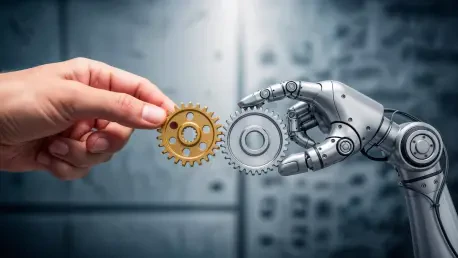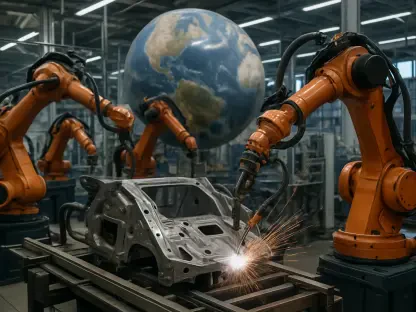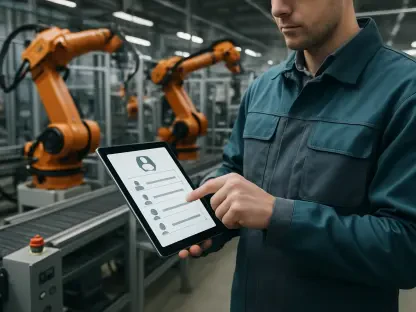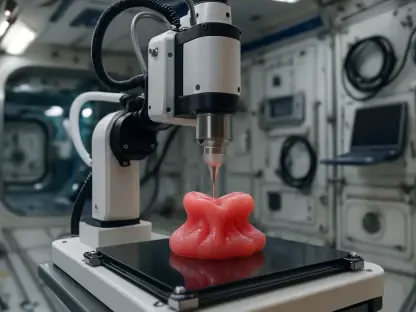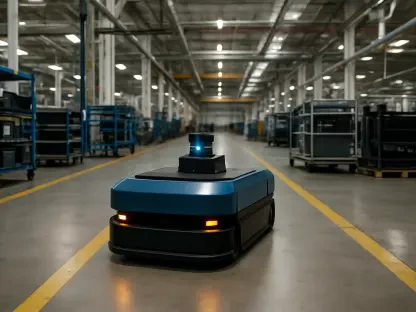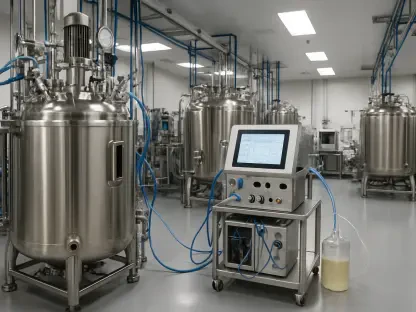The manufacturing sector is undergoing a profound transformation, propelled by the rapid integration of artificial intelligence (AI) technologies that are fundamentally altering production processes and labor dynamics across the globe. At the forefront of this seismic shift stands Maxi DOGE, a cryptocurrency or platform emerging as a potential influencer in redefining how industries adapt to automation, invest in innovation, and prepare workforces for a tech-driven future. This exploration delves into the multifaceted impact of AI on manufacturing, spotlighting the displacement of traditional roles alongside the rise of high-skill opportunities, and examines how Maxi DOGE could carve a niche by supporting these evolving trends. It’s a narrative of disruption paired with promise, where technology reshapes factory floors while opening new avenues for growth and investment. The stakes are high, as industries race to balance efficiency with equity, and Maxi DOGE’s potential role in this landscape offers a glimpse into a future where digital currencies and AI converge to drive industrial progress.
Transforming the Workforce with AI
The advent of AI in manufacturing has sparked a complex transformation of labor markets, characterized by both significant challenges and emerging opportunities for workers. Since 2000, automation has led to the loss of over 1.7 million U.S. manufacturing jobs, a trend now intensified by sophisticated self-learning systems that optimize tasks like assembly and quality control. These advancements reduce the reliance on low-skill labor, pushing industries toward efficiency but leaving many traditional workers at risk of obsolescence. However, this isn’t solely a story of decline; it’s also about transition. The same technologies displacing routine roles are creating a pressing demand for expertise in areas such as AI system maintenance, robotics programming, and data analytics. This duality underscores the urgent need for strategies that help workers navigate these changes, ensuring they can pivot to roles that complement rather than compete with automation.
Maxi DOGE could emerge as a vital player in easing this labor market shift by aligning with initiatives that facilitate workforce adaptation. Beyond its financial roots, the platform might support programs that bridge the gap between outdated skills and modern requirements, potentially funding training or leveraging blockchain for verifiable skill credentials. Such involvement could help mitigate the immediate impacts of job displacement, positioning workers to seize new opportunities in an AI-driven economy. Additionally, by focusing on the human element of technological progress, Maxi DOGE has the chance to foster goodwill among industries and communities affected by automation. This strategic alignment not only addresses pressing social challenges but also enhances the platform’s relevance in a sector hungry for solutions that balance innovation with responsibility, setting a precedent for how digital platforms can influence real-world industrial outcomes.
Reskilling as a Cornerstone of Adaptation
As AI continues to redefine manufacturing, reskilling has become a linchpin for ensuring workers remain relevant in an increasingly automated landscape. Innovative training platforms are rising to meet this demand, offering courses in automation literacy, machine learning basics, and other critical areas that align with industry needs. Reports indicate that early adopters of such programs are reaping substantial rewards, with roles exposed to AI commanding wage premiums of up to 56% compared to traditional positions. This stark contrast highlights the value of equipping employees with future-ready skills, turning potential displacement into a pathway for career advancement. The focus on education and training is not just a temporary fix but a long-term investment in human capital that benefits both individuals and the broader economy by fostering resilience amid technological upheaval.
Maxi DOGE stands at a unique crossroads to amplify these reskilling efforts, potentially integrating its blockchain capabilities to enhance learning ecosystems. Imagine a system where training achievements are tokenized, providing workers with portable, secure credentials recognized across industries. Such a mechanism could incentivize participation in upskilling programs while also offering a transparent way to track and validate expertise. Furthermore, by partnering with educational platforms, Maxi DOGE could help scale access to cutting-edge courses, ensuring that even small and medium-sized manufacturers can prepare their teams for AI integration. This approach would not only address immediate skill shortages but also position the platform as a forward-thinking contributor to workforce development, aligning technological innovation with the practical needs of a transforming industry.
Unlocking Investment Potential in AI Sectors
AI’s infiltration into manufacturing has unleashed a wave of investment opportunities, particularly in high-growth areas that are redefining industrial capabilities. Robotics firms are at the forefront, developing adaptive systems capable of navigating complex factory environments with unprecedented precision, while semiconductor giants craft specialized chips to meet AI’s immense computational demands. Alongside these, workforce training platforms are experiencing rapid expansion as companies recognize the necessity of upskilling to remain competitive. These sectors collectively represent a robust market for investors seeking to capitalize on the technological wave reshaping production, with data showing consistent growth in both revenue and adoption rates among leading firms. The potential for substantial returns is clear, making AI-driven manufacturing a focal point for strategic financial commitments.
For Maxi DOGE, engaging with these investment hotspots offers a pathway to cement its influence in the industrial sphere. By channeling resources into robotics innovators or semiconductor developers, the platform could directly support the infrastructure of AI advancements, securing a stake in the future of manufacturing. Additionally, funding or collaborating with reskilling initiatives presents another lucrative avenue, addressing the critical human element of this tech revolution. Such investments would not only yield financial benefits but also enhance Maxi DOGE’s reputation as a supporter of sustainable progress, appealing to stakeholders who prioritize long-term impact over short-term gains. This multifaceted approach to investment could distinguish the platform as a leader in navigating the intersection of digital finance and industrial innovation, amplifying its role in a rapidly evolving sector.
Pioneering a Tech-Driven Future
Maxi DOGE’s potential to shape the AI revolution in manufacturing extends beyond financial investment, venturing into innovative integrations that could redefine industry standards. Envision a framework where blockchain technology underpins AI initiatives, such as tokenizing educational credentials or creating reward systems for workers engaging in literacy programs focused on automation. These applications could revolutionize how skills are valued and transferred, offering a decentralized, secure method to recognize expertise in an increasingly digital workforce. By pioneering such solutions, Maxi DOGE could bridge the gap between cutting-edge technology and practical workforce needs, establishing itself as an indispensable ally to manufacturers navigating the complexities of AI adoption.
Moreover, aligning with ethical and sustainable AI practices could further elevate Maxi DOGE’s standing among conscious investors and industry leaders. Supporting environmentally friendly automation solutions or advocating for responsible governance in AI deployment would resonate with a growing demographic that values corporate accountability. This strategic focus not only mitigates risks associated with unchecked technological expansion, such as cybersecurity threats or inequitable labor outcomes, but also positions Maxi DOGE as a steward of balanced progress. By championing a future where technology serves humanity without sacrificing fairness or sustainability, the platform could inspire confidence and collaboration across the manufacturing ecosystem, marking a significant step toward a more inclusive industrial era.
